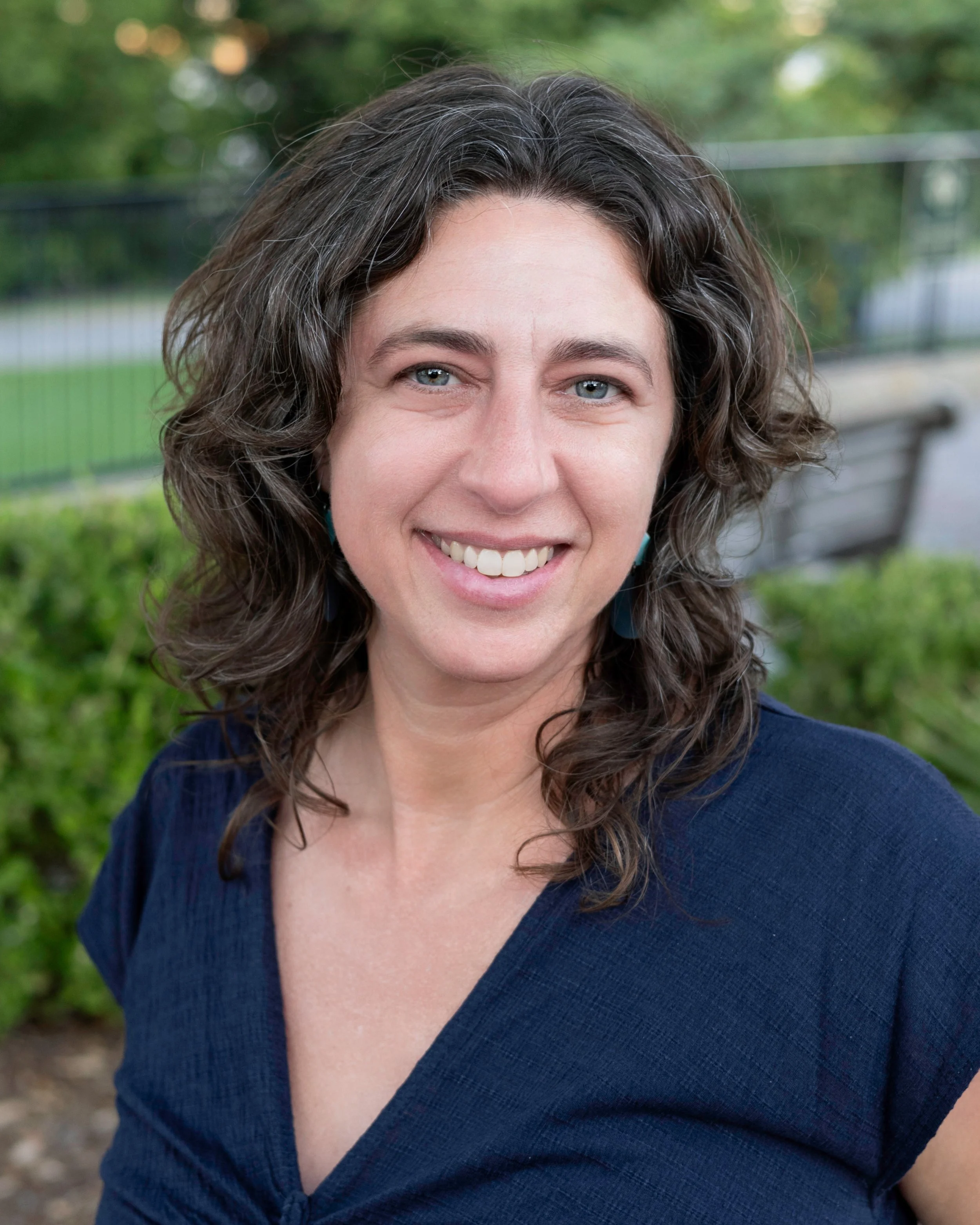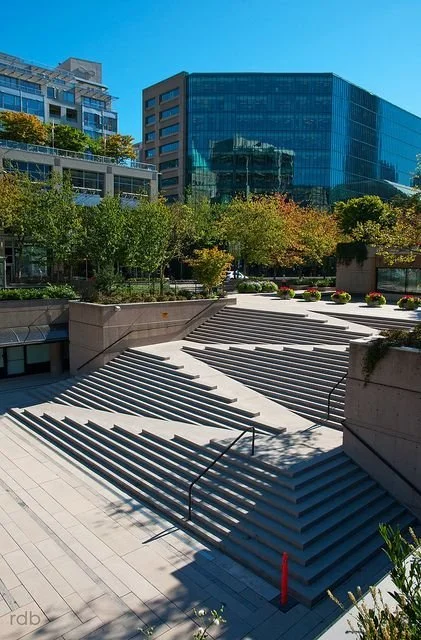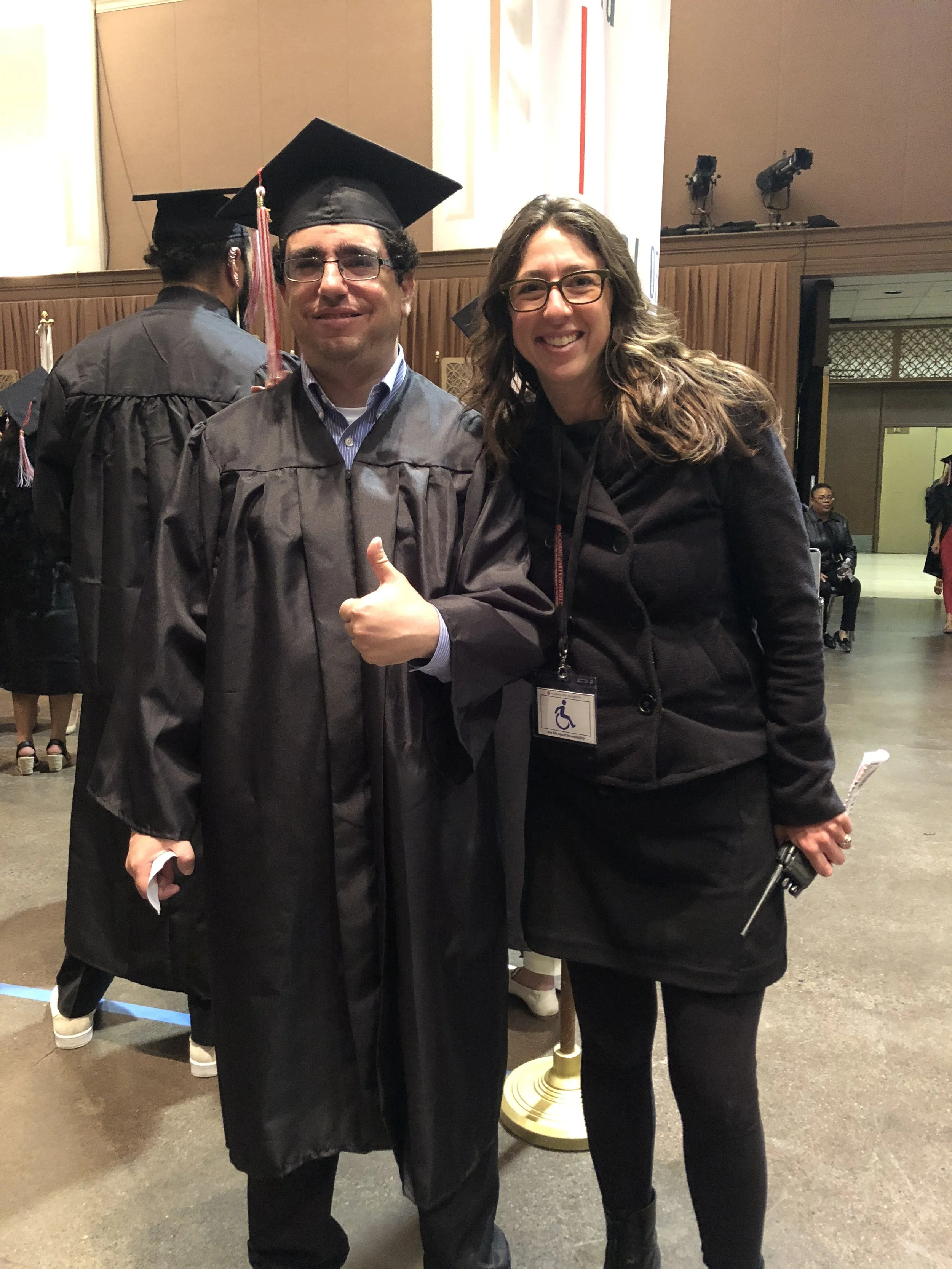Hi, I’m Andrea.
For over two decades, I’ve supported young adults with disabilities and their families as Director of Accessibility Resources at a university and as a special education teacher. As a student, I had accommodations myself. Now, as a parent, I understand the strong desire to set our children on a path that will help them thrive. I've worked with hundreds of students and families across many types of disabilities, learning styles, and life dynamics. I’ve read countless childhood assessment reports, and I’ve met those students as young adults — a perspective that’s shown me how both school experiences and perceptions of disability shape a person’s path.
Clients describe me as warm, straightforward, and nonjudgmental — someone who gets to the heart of the matter. My approach blends structure and flexibility, grounded in the belief that everyone deserves to feel comfortable in their environment — physically, emotionally, academically, and socially.
Whether you’re navigating college accommodations, advocating for your needs, or just trying to move through the day without having to explain yourself, I’ll meet you where you are and help you move forward with clarity and confidence.
What I’ve learned from students is that, while everyone’s path looks different, many share the same hopes: to be understood, to feel steady, and to create a meaningful life. That perspective guides everything I do.
I live in San Francisco, CA with my husband and two kids. I love reading to them, volunteering at their school, swimming in the cold bay and ocean waters (or anywhere), and exploring the outdoors, cities, and small towns.
My View on Disability and Neurodivergence
Being different isn’t the problem — design is. Our systems were built with certain people in mind, and when you don’t fit the mold, you’re expected to do the work of adjusting. Maybe that means conforming to social norms in class or at work, being in environments that overwhelm your senses, or finding your own work-arounds when you don’t want to ask for help. But you shouldn’t have to carry that extra weight alone. You deserve spaces and supports that anticipate your needs, not just react to them.
That’s why I value Universal Design. It's not about granting exceptions; it’s about creating more flexible environments where fewer exceptions are needed to begin with. Just as ramps and curb cuts make movement easier for many people, sharing information in multiple formats, giving students the time they need to take exams, offering quieter spaces, and providing clear instructions make learning and working more accessible.
Design like this says: we thought beyond ourselves.
Things I Believe:
Self-determination, or causing things to happen in one’s own life by setting and pursuing goals, is foundational to finding meaning and fulfillment
Access and inclusion are everyone’s responsibility
Feeling like there’s space for you shouldn’t take so much work
You are not a burden for needing something that isn’t already provided
Your interests can be central to your life and your accommodations can be your tools, not what defines you
Education & Selected Experience
Director of Accessibility Resources at the Academy of Art University
Teacher and director for a K-8 non-public school within a group home
Special education teacher at a public high school
BS in Elementary Education and Special Education
California Multiple Subject Teaching Credential for grades K-8
California Education Specialist Instruction Credential, Mild to Moderate for grades K-12
Racially Conscious Collaboration Foundations Seminar — Tony Hudson; RCC
ADA Accessibility Survey Training
AHEAD Member — Association on Higher Education and Disability
Faculty workshop facilitator: metacognition, student motivation, student gender identities, and creating universally designed classrooms / learning materials / teaching strategies




